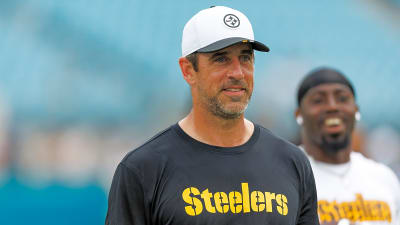
The Washington Capitals escaped Game 4 in Montreal with a 5-2 win on Sunday night. For anyone casually glancing at the box score, it would seem like a runaway victory for Tom Wilson and his Capitals. However, the win-loss margin in the game was razor-thin, with Andrew Mangiapane’s game-winning goal scored with 3:37 in regulation. A fiery Canadiens crowd was silenced over the final few minutes as Washington sealed the game. Game plan adjustments and a potential series-changing body check paved the way for a 3-1 Capitals lead in Round 1.
Capitals’ Defensive Adjustments Limited the Canadiens to 18 Shots
Coaches can significantly impact how a series develops in the playoffs. Those who can make adjustments on the fly will thrive and advance, while those incapable of making those decisions will wilt and fade away like a cherry blossom during a gusty storm. Spencer Carbery made a significant adjustment in Game 4 that helped swing the series’ momentum back in their direction.
The Capitals allowed 40 shots from the Canadiens in the Game 3 loss at the Bell Centre. In the Game 4 win, Cerbery’s squad removed Montreal’s shot volume, limiting the Canadiens to five first-period shots and four second-period attempts. It was an excellent way to protect a returning goaltender, Logan Thompson, who had departed Game 3’s loss via injury.
Washington survived the hyped-crowd environment long enough to escape Canada with a Game 4 victory before the 587-mile trip back to Washington, D.C., needing one more win to claim their first series win since 2018. Both squads will have 48 hours to rest and recover, with added travel built into the schedule leading to Wednesday night’s Game 5 at Capital One Arena.
Wilson’s Third-Period Hit Was a Game-Changing Moment
Wilson is known for his physicality. The 31-year-old winger finished 15th in the NHL with 233 hits in 2024-25. The leading current NHL-hit king, Kief er Sherwood of the Vancouver Canucks, is in his stratosphere with 462 body checks this season. Wilson has always played with an edge, which his Capitals team thrives on during essential moments in the game.
One of those moments arrived with 13:36 left in the third period with Washington trailing 2-1. Canadiens defenseman Alexandre Carrier charged towards a loose puck in the neutral zone before a Wilson-sized freight train arrived and dropped him to the frozen floor. As Carrier slowly made his way to the Canadiens’ bench on the far side of the ice, the Capitals received a lucky bounce as Brandon Duhaime’s shot was denied by Jakub Dobes but deflected off a Montreal defender and into the net to tie the game at two.
After the game, Wilson explained the play to TNT’s postgame show. “Playoffs is extremely physical,” Wilson said. “You know, they’re hitting, we’re hitting, you get hits, you give hits. Last couple of games, I’ve spent a lot of time in the (penalty) box, so coming into this one, I wanted to play between the whistles.”
"They're hitting, we're hitting, you get hit, you give hits…"
— NHLonTNT (@NHL_On_TNT) April 28, 2025
Tom Wilson with an impactful hit that set up the Caps Game 4-winning goalpic.twitter.com/zgAGTLfQeF
Unsurprisingly, not everyone was thrilled with the play. Montreal netminder spoke to Sportsnet about the play. “I was ready for the first shot, and I don’t even know what happened,” Dobes said. “I feel like it hit Cole (Caufield), and it bounced, and it bounced over my pad. It’s whatever… Hockey, I guess… I felt like it should’ve been a whistle. It was kind of a scary hit, but I guess the rules don’t apply to everyone in this league.”
Capitals’ Undisciplined Play Nearly Cost Them in Game 4
If the Canadiens had skated away with a Game 4 win, the questions surrounding the Capitals would increase from a dull roar to a small punk-rock concert live event. While Washington was incredibly undisciplined, in reality, both teams were playing on the ledge of a skyscraper in Game 4.
Four interference penalties were whistled in the contest, including three against the Capitals. An interference penalty is a restraining infraction “when any identifiable player on the player’s or penalty bench, by means of his stick or body, interferes with the movements of the puck or an opponent,” according to NHL’s Rule 56. This Eastern Conference playoff series has seen combatants contesting every inch of ice. With hockey’s blink-and-you-may-miss-it speed, it can be challenging to find the correct balance between a legal hit and a late hit. That’s why it’s up to a referee’s discretion to make the correct penalty call (or non-call).
During a second-period Capitals man advantage, Alex Ovechkin leveled Jake Evans with a hit that was whistled for interference at 18:02 of the middle frame. Thirty seconds later, Cole Caufield was being mobbed by teammates with his hands in the air following a one-timer power play goal for a 2-1 lead. That goal occurred with 88 seconds remaining in the second period. Like the late goals from Game 3, the Bell Centre crowd was once again full of energy as fans storm ed the concourse for the intermission. For anyone wondering, yes, Ovechkin’s hit was absolutely an interference penalty.
For Washington, avoiding Montreal’s high-power attack with the man advantage is critical to the game plan. Nearly half of the Canadiens’ goals have followed a minor penalty for the Capitals. Montreal has scored 11 times against Washington in Round 1, including a power play tally in three of the four games. With five power play goals representing a 45% share of Montreal’s scoring in the series, it would be wise for Washington to avoid solo trips to the penalty box as the Capitals attempt to close out the Canadiens later this week.
More must-reads:
- Panthers will be without Matthew Tkachuk for a while
- Wild to sign Marco Rossi to multiyear deal
- The 'Second-leading receiver by NFL team' quiz
Breaking News
Trending News
Customize Your Newsletter
 +
+
Get the latest news and rumors, customized to your favorite sports and teams. Emailed daily. Always free!








